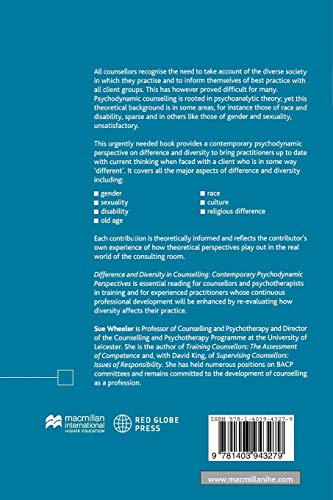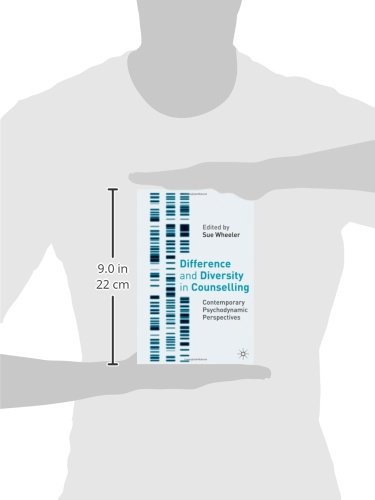Customer Services
Copyright © 2025 Desertcart Holdings Limited




Full description not available
O**S
Not an Easy Read but Extremely Useful
Completely agree with the other reviewer. I'm on an integrative humanistic course (second year) so some of the more 'chin-strokey' psychodynamic concepts were a bit too advanced for me and hard to wrestle with at times but it's been worth sticking with and has been my secret weapon for my transcultural counselling essay.
A**S
good book to have
it arrived very quickly, and very helpful with an assingement i am working on. Im still trying to digest the information on the subject matter
N**R
Very good 'clinical' read, way better than expected
This book by Profesor Sue Wheeler explores in clear and balanced ways how therapists both encounter, and need to respond to, all kinds of 'differences' in clients. This includes; disability, gender, age, migration issues, race and religion, sexuality, etc. It is both about the politics of contemporary therapy as well as how the above issues play themselves out in the therapeutic encounter. The author does not preach yet the throughtful book clearly is about therapeutic ethics of a most relevant kind to counsellors and psychotherapists. The sections on disability (clients with) and the effects on the counsellor I found useful. The issues of transference and counter-transference (the latter is a major issue) are also explored as they must be. That is; the therapist's fears, anxieties, assumptions, phantasies, rescue phantasies, distancing, etc, all such human-therapist/ client reactions are acknowledged. Not 'PC heavy' and defintely not superficial. As a Psychotherapist myself I clearly know how much client 'differences' such as a disability, or say a major sexuality issue, affect one's way of acting as a therapist in ways sometimes hard to even think about let alone talk about. Hence why I read this book!. I strongly recommend this book for all integrative / person-centered / psychodynamic counsellors (CBT therapists do need to read this stuff too!).
Trustpilot
3 days ago
3 weeks ago